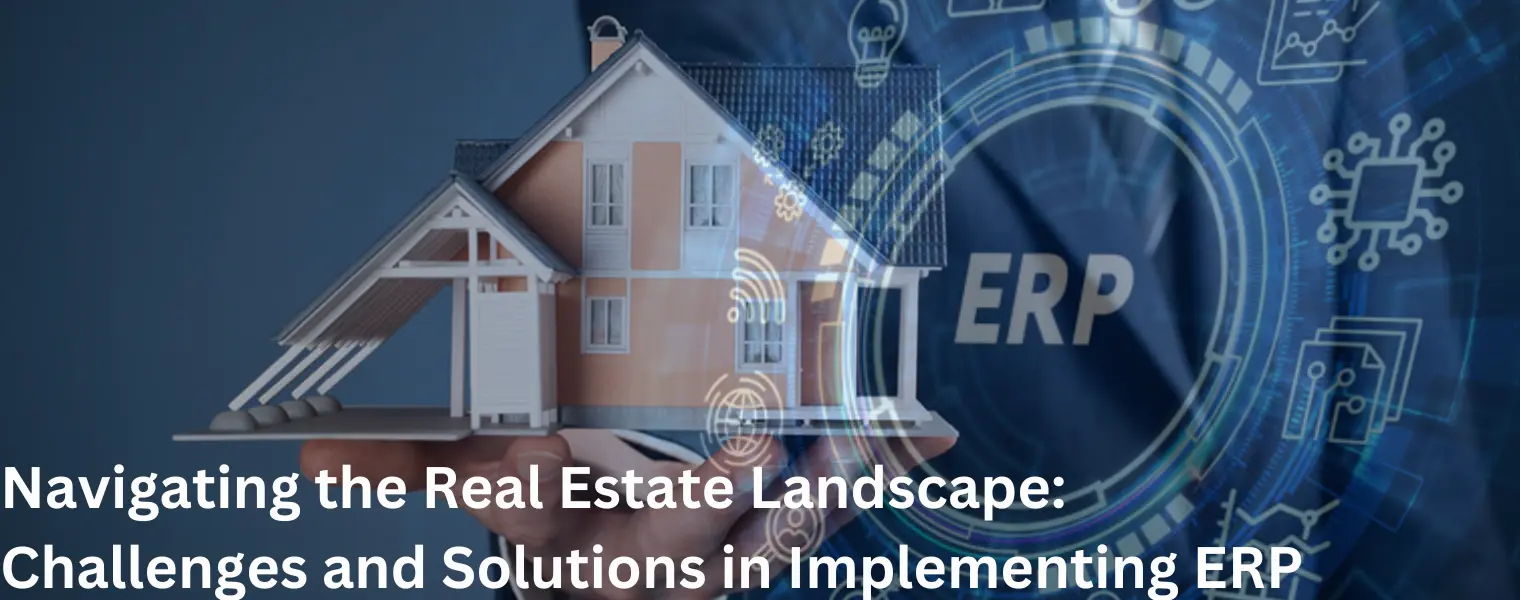
In the fast-paced world of real estate, staying ahead of the curve requires more than just a keen eye for properties. Efficient management of diverse operations, ranging from property acquisition to customer relationship management, demands a robust Enterprise Resource Planning (ERP) system. However, implementing ERP for real estate comes with its own set of challenges. In this blog post, we will delve into these challenges and explore potential solutions to ensure a seamless integration of ERP in the real estate industry.
Real estate companies often rely on legacy systems that may not be compatible with modern ERP solutions. Migrating data from these systems to a new ERP can be a complex and time-consuming process.
Solution: Conduct a thorough analysis of existing systems and data structures. Implement a phased approach to integration, allowing for a gradual transition to minimize disruptions. Invest in middleware solutions that facilitate communication between legacy systems and the new ERP.
Real estate transactions involve sensitive information, and ensuring data security and compliance with industry regulations is paramount. ERP implementation introduces new potential vulnerabilities that need to be addressed.
Solution: Collaborate with cyber security experts to establish robust security measures. Implement encryption protocols, conduct regular security audits, and ensure compliance with data protection regulations such as GDPR or HIPAA.
Real estate businesses have unique processes and workflows. Off-the-shelf ERP solutions might not cater to these specific needs, necessitating customization that can be both time-consuming and expensive.
Solution: Choose an ERP platform like DoFort Real Estate ERP that offers a high degree of customization. Work closely with the ERP vendor or consultants to tailor the system to meet the specific requirements of the real estate business. Prioritize customization that aligns with business-critical processes.
Resistance to change among employees is a common challenge during ERP implementation. Training staff to use the new system effectively is crucial for maximizing its potential.
Solution: Establish a thorough training initiative encompassing practical hands-on sessions and comprehensive documentation. Effectively convey the advantages of the ERP system to your employees, ensuring their active involvement in the decision-making process. Proactively handle concerns and feedback to foster a positive attitude toward the new system, with the expertise of DoFort's professionals readily available to assist in this process.
Real estate businesses often experience periods of rapid growth or contraction. The ERP system must be scalable to accommodate these changes without compromising performance.
Solution: Select an ERP solution like DoFort Real Estate ERP which is designed for scalability. Regularly review system performance and scalability to identify potential bottlenecks. Ensure that the ERP can adapt to changes in user numbers, transaction volumes, and data storage requirements.
Introducing an ERP system into the real estate sector is a strategic decision that holds the potential to significantly improve operational efficiency and decision-making processes. However, it is imperative to comprehend and effectively address the challenges associated with ERP implementation to ensure a seamless integration. At DoFort, our team of experts is committed to supporting you throughout the entire implementation journey—from the initial decision-making phase to the ongoing support required for day-to-day operations as your organization matures. Through a meticulous and collaborative approach, coupled with substantial investments in user training, real estate businesses can adeptly navigate the intricacies of ERP implementation and fully harness the capabilities of these robust systems. Reach out to us for further information and to initiate a detailed discussion and demonstration.
Welcome to DoFort !